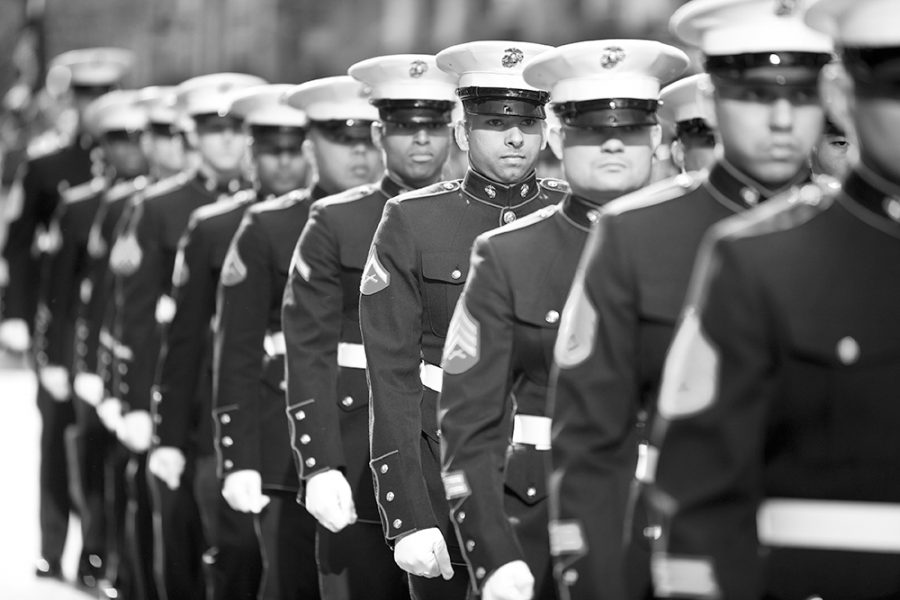Veterans deserve better care
Too many of those who serve do not receive the care they need.
November 3, 2015
As of January 2014, there were an identified 49,993 homeless veterans in the U.S. with veterans making 8.6 percent of the total homeless population, according to the National Alliance to End Homelessness.
The same report states, “Homeless veterans tend to be male (91 percent), single (98 percent), live in a city (76 percent) and have a mental and/or physical disability (54 percent).” Veterans are also more likely to experience homelessness compared to civilians, and veterans returning from the war in Iraq and Afghanistan were more likely to be younger and include females. The 2015 Greater Los Angeles Homeless Count by the Los Angeles Homeless Services Authority has identified 79 homeless veterans currently residing in greater LA.
CONTINUING TO EXIST
Although this national crisis has received significant attention in the media and resulted in the significant decrease in veteran homeless in the past five years, veteran homelessness continues to exist because of flaws in the Veterans Affairs health system and continuing military operations in the Middle East.
“The Fact Sheet: Veteran Homelessness” by the National Alliance to End Homelessness states, “Like the general homeless population, veterans are at a significantly increased risk of homelessness if they have low socioeconomic status, a mental health disorder, and/or a history of substance abuse.”
The VA health care system “provides medical care to about 9 million veterans and family members,” according to the Associated Press,The article reports 18 vets left off the waiting list have died. This report comes when a CNN article last year reported, “At least 40 U.S. veterans died waiting for appointments at the Phoenix Veterans Affairs Health Care system, many of whom were placed on a secret waiting list.”
An internal VA audit also revealed that over 120,000 veterans were left waiting or never received their medical care. These numbers, however, do not reveal the individual stories of veterans who received inadequate care and suffered from flaws in the VA’s system.
INADEQUATE AND INEPT CARE
Late Army veteran and Iraq War critic, Tomas Young, who was paralyzed in an insurgent ambush in Sadr City in 2004, wrote his last letter to George W. Bush and Dick Cheney. In the letter, Young states, “I have, like many other disabled veterans, suffered from the inadequate and often inept care provided by the Veterans Administration. I have, like many other disabled veterans, come to realize that our mental and physical wounds are of no interest to you, perhaps of no interest to any politician. We were used. We were betrayed. And we have been abandoned.” Young passed away on Nov. 10 of last year.
Young’s wife, Claudia Cuellar, states, “My conclusion is that he died in pain from the exhaustion of having to endure it.”
FIXING THE SYSTEM
Veterans of all people should not suffer because of the VA’s inefficiency and should not live on the streets when there are over 77,000 empty or underutilized government buildings that could be refitted to shelter the homeless. Fixing the VA will require rebuilding the IT system, restructuring the health care system, increasing funding, and most importantly, ending wars.
Those who endure the tragedy of war and face the heat of battle should not fight one another when they return home.







